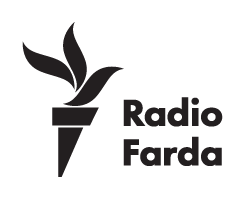Iran's ailing economy has been the most significant issue on Iranians' minds and the subject of fierce debates in the parliament while Iranian officials were at loggerheads with the U.S. President and Secretary of State at the start of the week.
In their criticism of Tehran's top politicians, both U.S. President Donald Trump and Secretary of State Mike Pompeo appeared to be mindful of the perils of widespread corruption and mismanagement across Iran's economic institutions. They talked of officials pocketing people's money and the state wasting national resources in Syria and the rest of the Middle East.
The indications of Iranian officials being in denial of economic problems were most visible in the Iranian Parliament.
Some 90 members of the parliament have called for the impeachment of Economy Minister Massoud Karbasian, Mehr news agency reported on July 23.
Mehr quoted Tabriz MP Ahmad Alirezabeigi as saying, "The president and the foreign minister are personally responsible for the current economic situation," adding, “Foreign Minister Mohammad Javad Zarif had previously promised that problems in Iran's economy would be solved within six months."
Hosseinali Hajideligani, a member of the Planning and Budget Committee of the parliament, told Tasnim news agency that the Rouhani administration's economic team "is responsible for Iran's economic problems," apparently referring also to the impact of sanctions slated to be imposed on Iran in August and November.
In another move, members of the parliament tabled a motion on July 24 to launch an investigation into the allocation of foreign currencies to some companies at a lower rate. The rate was introduced by Vice-President Eshaq Jahangiri in May as the "unique government rate."
Subsequently, Iranian media revealed that tens of profiteering companies linked to some officials spent the foreign currencies allocated for purchasing essential commodities on buying luxury cars. Others sold what they had imported at a higher rate up to three times as much, Iranian media reported.
Those who have called for the investigation want to know what happened to 12.5 billion dollars allocated in this way, reported the Iranian Students News Agency (ISNA).
In a related development, Gholamhossein Mohseni Ejei, spokesman for the Iranian judiciary, announced on July 23 that five Industry Ministry officials were arrested on charges of "coordinated corruption" and the mishandling of funds used to import thousands of luxury cars, Fars news agency reported.
He also said a number of suspects, mainly cell phone importers, were arrested for financial corruption and the mishandling of funds.
In the meantime, the foreign currency and gold markets responded to the war of words between the Iranian and U.S. presidents almost immediately.
The price of the standard gold coin rose to 34,810,000 rials for delivery in January 2019, although some older mints are being traded at more than 32 million rials.
At the same time, it appeared that something, probably state censorship, prevented the media from announcing the fluctuation in the rate of exchange of U.S. dollars. The rates chart on some sites such as Pishkhaan were left blank. Traders’ websites maintained outside Iran announced the rate on July 24 as 109,090 rials per euro and 122,360 rials for per British pound.



